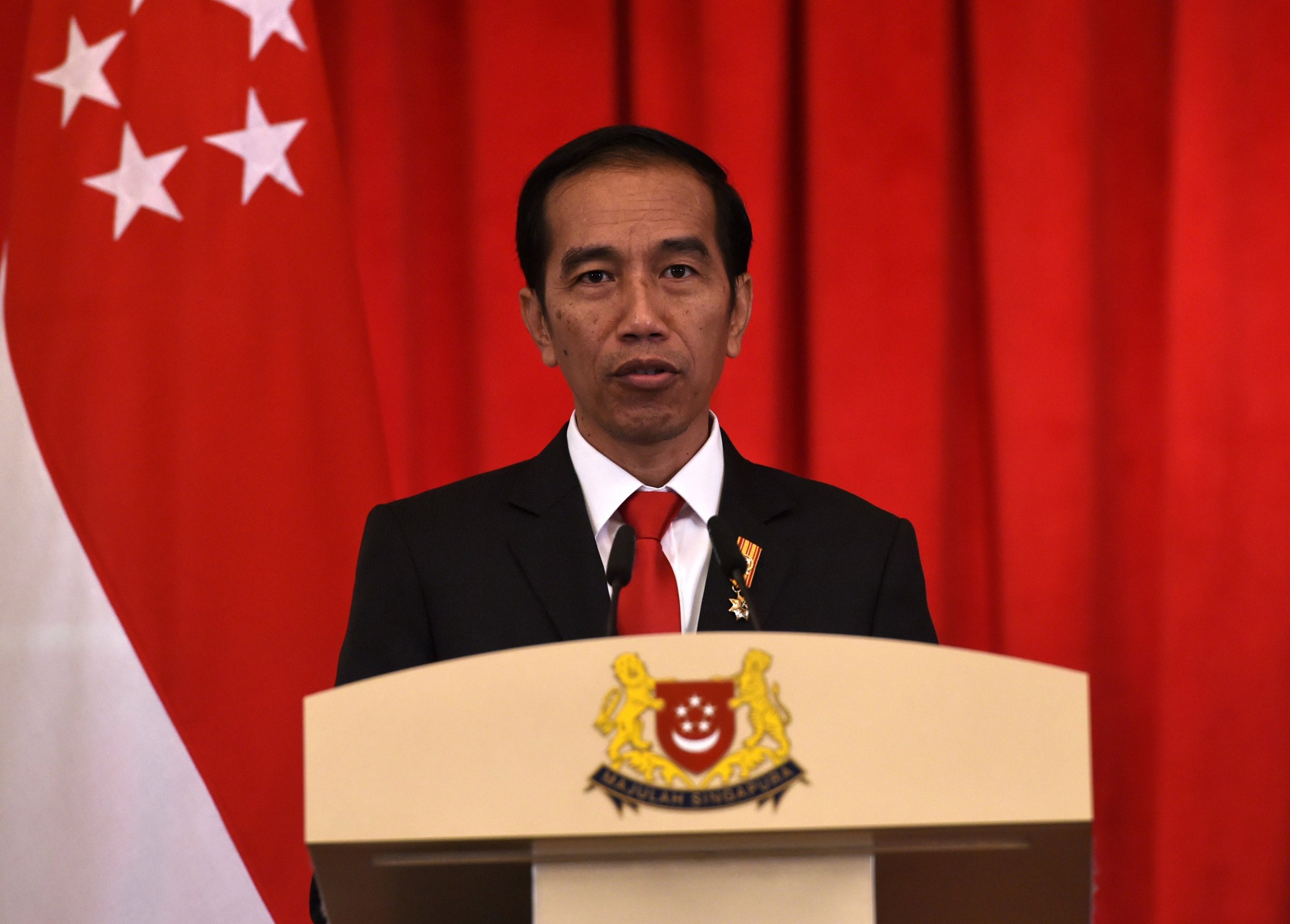
Over the past week, Indonesian President Joko “Jokowi” Widodo has been busy not only staring down the terrorists who brought bloodshed to the streets the capital Jakarta, but also trying to save the world. Or at least that is the suggestion of a pair of photos in the pages of Indonesia’s Kompas daily on Tuesday, showing Jokowi’s top envoy visiting the Middle East’s sparring rivals, Iran and Saudi Arabia.
One image shows Indonesian Foreign Minister Retno Marsudi in a hijab — unusual for her — meeting with Iranian President Hassan Rouhani in Tehran on Jan. 13 to deliver a letter from Jokowi. In the second picture, taken five days later, Retno, again opting to cover her short hair with a scarf, sat down with Saudi King Salman bin Abdulaziz al-Saud in Riyadh, also to deliver a written message from the Indonesian leader.
“In the letter, President Jokowi emphasizes the importance of stability and peace in the region, the importance of a good relationship between Saudi Arabia and Iran, as well as Indonesia’s willingness to help mend the ties between the two countries,” the Indonesian Foreign Ministry said in a statement Tuesday.
They may sound like diplomatic niceties, but in fact an attempt by Indonesia — home to the world’s largest Muslim population — to mediate the conflict “is a step that many people have been waiting for,” says Burhanuddin Muhtadi, political observer and executive director of Indikator Politik Indonesia. And the Indonesian leader has every incentive. “Jokowi also needs to boost his Islamic credentials, at home and internationally,” Burhanuddin says.
On Jan. 5, Muslim clerics from the influential Indonesian Ulema Council (MUI) met with Jokowi to urge the government to help cool Middle Eastern tensions. “Indonesia, as a Muslim-majority country, has a strategic position to mediate the conflict,” MUI chairman Ma’ruf Amin told reporters. On the same day, Indonesian Religious Affairs Minister Lukman Saifuddin, after meeting with the President, said the country planned to organize an international conference to bring the two sides together.
This would not be the first time Indonesia has attempted to broker peace talks in the Middle East. Last year, the Organisation of Islamic Cooperation (OIC) asked Indonesia to mediate a discussion on the Yemen conflict, seen as a proxy war between Iran and Saudi Arabia, during the Asia-Africa Conference in Bandung. Foreign Minister Retno said she had talked with both the OIC and the E.U. to secure cooperation in dealing with the region’s latest flashpoint.
When Saudi-Iranian hostility hit new highs — following the execution of a dissident Saudi Shi‘ite cleric in early January, attacks on Saudi Arabia’s diplomatic missions by Iranian protesters, and the severed diplomatic ties between the two countries — countries like Russia and Pakistan offered help to mediate between Tehran and Riyadh. Earlier this week, Pakistan’s Prime Minister Nawaz Sharif even led a delegation to Saudi Arabia and Iran. However, Russia (and Iran) support the Assad regime in the Syrian conflict, while Pakistan is in an awkward position, caught between its close ally Saudi Arabia and geographical neighbor Iran.
In contrast, Indonesia has always been careful to maintain its neutrality. In mid-December, Saudi Arabia announced a 34-country “Islamic military alliance” to fight terrorism. It also mentioned Indonesia as one of the 10 additional “Islamic countries” that had expressed support for the coalition. But, Retno quickly rebutted the Saudi claim, saying Jakarta never gave any support.
Evan A. Laksmana, researcher at the Centre for Strategic and International Studies in Jakarta, is skeptical about Indonesia’s diplomatic efforts. “Our investment in Mideast politics and diplomacy is not strong, continuous and coherent. Without these assets, what leverage can we use to push the Saudi-Iran talks?” he says. “Neutrality gets you in the door, leverage gets you results when you sit on the table.”
But the decades-old regional conflict between Saudi Arabia and Iran has spilled beyond the Middle East and has even emerged in Indonesia. While Indonesia’s Muslims are largely Sunni, the country also has a small Shi‘ite population. However, the Syrian war — in which Iran backs the Assad regime (the ruling family belongs to the Shi‘ite Alawite sect) and Saudi Arabia’s austere Wahhabi brand of Sunni Islam inspires the jihadists — has intensified the sentiment against and persecution of the Indonesian Shi‘ites by the Sunni hard-liners.
This domestic problem could pose a challenge. “If you can’t get your own house in order, how can you be a messenger preaching how to best manage a house?” says Laksmana. “This is where the phrase ‘foreign policy begins at home’ comes from.”
More Must-Reads from TIME
- Why Trump’s Message Worked on Latino Men
- What Trump’s Win Could Mean for Housing
- The 100 Must-Read Books of 2024
- Sleep Doctors Share the 1 Tip That’s Changed Their Lives
- Column: Let’s Bring Back Romance
- What It’s Like to Have Long COVID As a Kid
- FX’s Say Nothing Is the Must-Watch Political Thriller of 2024
- Merle Bombardieri Is Helping People Make the Baby Decision
Contact us at letters@time.com